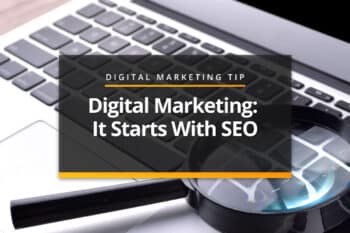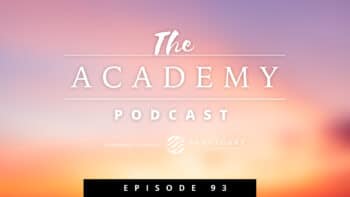For those of you inquisitive individuals doing a search on this elusive, confusing term, I thought I would offer up my interpretation of what exactly SEO means.
Maybe you’ve heard the term during an office water cooler conversation or maybe you’ve seen a reference to it online. Maybe you even know enough that it has to do with marketing your website in the search engines. For most people though, SEO means performing some crazy, juju-voodoo magic on your website with the ambitious goal of ranking your website in the top positions.
Let me just say that it doesn’t have to be that complicated and there is very little voodoo on hand here. There is a right way and a wrong way to do things though and that’s where we can help. There’s an entire industry built around SEO and countless, never ending discussions about the finer details of the practice. But the core “best practices” of SEO are fairly solid and accessible if you know specifically what you’re doing.
A definition of SEO:
SEO is short for, and officially translated as Search Engine Optimization. Search Engine Optimization is the practice of “optimizing” elements within your website – and related to your website – so the search engines will consider your content more relevant to a user’s search inquiry. Beyond the “traditional” definition, SEO can take many forms and include many types of digital marketing that all have the common goal of increasing traffic to your website.
We’ll talk more about these additional methods in the future, but for now, we’re going to talk specifically about basic SEO.
The basic elements of SEO:
The practice of search engine optimization consists of a couple core elements. If you feel like getting technical and spending every waking moment talking about the finer points, new tactics and theories you surely can. There are many great sites and books devoted to SEO and the finer points. Without a doubt though, there are 4 main things that we focus on when optimizing your website for the search engines.
Keyword research:
SEO is useless without research. If you know what people are searching for specifically you’ll have a much better time and find yourself to be far more successful in the long run. You should spend a lot of time researching the specific words and phrases that your customers and clients might use to find you – plus extensive competitive analysis. You should also get your hands dirty and review the competition yourself and make many decisions based on observation and our experience.
To have an effective SEO campaign you need to know what people are searching for, not what you think they’re searching for. There’s a big difference between someone typing “SEO training” and someone typing “Learn search engine optimization”, for example. One search might have 10 queries a month, the other might have 1000. Ideally you should do your homework before you even start designing a website. You can use your data to build a more effective website and digital marketing campaign on many levels.
Optimizing page content for the search engines:
At the most basic level, SEO involves using specific keywords and phrases in your content and writing naturally to create valuable and helpful content that solves the problems of your target customer. It’s as simple as that. Search engines love content that is relevant and that’s what their businesses are built around. They want to give you the most relevant and useful content when you search. If they don’t, then visitors will use another engine and that will possibly cost them revenue in the future. Due to this fact, the search engines are smart – and getting smarter every day. They want good content that’s relevant to a user’s search inquiry and it’s getting harder and harder to fool them.
If you’re writing your website content yourself, take your time and write great, relevant content that revolves around your target subject and use your best keywords where it matters. Make sure to use proper English, punctuation and check your spelling. It all figures into the search engine’s opinion that you’re presenting high quality, useful, relevant content. Doing all this well results in higher rankings and that’s your goal.
Optimize website code for the search engines:
If you’re not a technical person this might sound like a daunting task. It’s one that might give another website the leg up though if you don’t take it seriously. That’s one of the reasons that you might choose to hire an SEO expert. But, there are some basic things that you can do without being a computer scientist though if you just know what’s most important.
For example, you should use your keywords in your page title. It’s at the very top of every HTML page and it begins with <title>. For obvious reasons search engines pay close attention to the page title because it summarizes specifically what the subject of the page is.
Make sure the subject of your page is coded with an H1 tag. This is fairly easy to figure out and there are many resources on the web that will help you with this easy task. Essentially all you need to do is label your page title like this <H1>Subject of your article</H1>. H1 tags should be used once on a page because they tell the search engines what this page is about.
If you’re using a content management system like WordPress, the software will do this for you automatically. So consider this as an option if you’re not interested in getting your hands dirty with code.
Link to others, get others to link to you and link throughout your own site
Links are very important to SEO on many levels. A link essentially confirms that someone considers a page of content important and trustworthy. It can also be a referral, suggestion, recommendation or “vote” that tells the reader that something is relevant or related to the content you’re presenting. The more people that link to your site, the more “votes” you have in the eyes of the search engines and the higher you will rank.
Links can essentially make or break a competitive SEO campaign so you should always take some time to link to others and do what you can to get high quality links back to your site in return. This can be very time consuming though and another good reason to hire a professional. In addition, linking to other relevant sections of your site from within your content makes sense too and will improve the readers experience. So don’t miss an opportunity to do this if you’re taking on SEO yourself.
Summary:
As you can see, very basic SEO is not difficult in theory. The difficulty comes when you don’t know the basics in intimate detail and you don’t spend the time to do it right. It’s also fairly time consuming. That’s where a good SEO company can help. You also have to know what NOT to do. What might seem like a good idea on the surface may be an old “black hat” trick in disguise. Doing the wrong things might end up doing more harm than good.
We don’t say these things to scare you though. If you can do it yourself we think that’s great. But if you’re planning on taking on the challenge yourself, take the time to think through things, do a lot of research on what’s good and bad SEO, and follow these simple guidelines and I think you’ll find that you’ll be pleased with your results.
Most Popular Articles

Seeing Favicons in Your Google Search Results? Here’s Why…
Have you noticed anything different in your Google Search results lately? Google added tiny favicon icons to its organic search results in January. It was…

Business Growth and Digital Marketing News & Tips 11-17-24
Are you encouraging and rewarding innovation? Lee Cockerell is the former Executive Vice President of Operations at Walt Disney World. A lover of traditional red…

Business Growth and Digital Marketing News & Tips 11-27-24
A culture of gratitude "Feeling gratitude and not expressing it is like wrapping a present and not giving it." – William Arthur Ward Beyond being…








